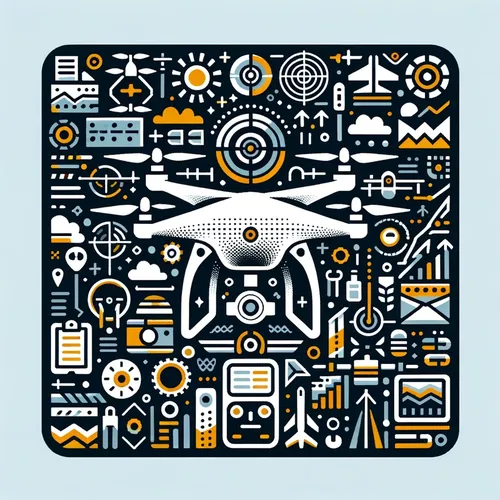Drone Drama: Soaring Profits, Plummeting Prices, and Pesky Regulations - Industry Insiders Tell All!
- Author
- Quiet. Please
- Published
- Sat 21 Dec 2024
- Episode Link
- https://www.spreaker.com/episode/drone-drama-soaring-profits-plummeting-prices-and-pesky-regulations-industry-insiders-tell-all--63426199
This is you Professional Drone Pilot: Flight Tips & Industry Updates podcast.
As we approach the end of 2024, the drone industry continues to evolve, offering new opportunities and challenges for professional drone pilots. To stay ahead, it's crucial to master advanced flight techniques, maintain equipment, and stay updated on industry trends and regulations.
For safe and efficient flights, pilots must ensure a clear and obstacle-free area around the drone, check and secure all propellers, and verify battery levels on both the drone and controller[1]. Spatial awareness and visual contact are also essential to avoid accidents. Navigational errors can lead to safety hazards and legal issues, so it's vital to be aware of restricted airspace and establish protocols for navigation.
Equipment maintenance is another critical aspect. Regular checks and optimizations can significantly reduce life cycle costs and increase fleet availability. For instance, a study by BQR Reliability Engineering found that maintenance and logistics optimization can achieve a 34% reduction in life cycle costs[2].
Weather considerations are also paramount. Pilots should plan flights during favorable weather conditions, adjust flight paths based on wind patterns, and monitor real-time weather updates during flight[3]. This not only ensures stable flight conditions but also improves data quality.
Certification and licensing updates are also important. In the US, commercial drone pilots must obtain a Remote Pilot Certificate from the Federal Aviation Administration (FAA), which involves passing a knowledge test covering airspace regulations, weather patterns, and emergency procedures[5]. Similarly, in the UK, commercial drone operators must hold an adequate level of insurance, including public liability and aviation-specific liability[4].
In terms of business opportunities, the drone insurance market is growing, driven by the increasing use of drones in various industries. This trend is expected to continue as technology develops and retailers rely more on drones for deliveries.
For client relations and pricing strategies, it's essential to understand the value proposition of drone services and communicate this effectively to clients. This includes highlighting the benefits of drone technology, such as cost savings and improved data quality.
Looking ahead, the drone industry is poised for significant growth, with applications in construction, engineering, photography, and filmmaking. As technology advances, we can expect to see more sophisticated drones and increased demand for professional drone pilots.
In recent news, retailers have begun trialing drone delivery, marking a new era in logistics. Additionally, the UK has implemented comprehensive drone laws regulated by the Civil Aviation Authority to ensure safe and responsible drone operations.
Practical takeaways for professional drone pilots include:
- Regularly check and maintain equipment to ensure safety and efficiency.
- Stay updated on weather conditions and adjust flight plans accordingly.
- Obtain necessary certifications and licenses to operate legally.
- Develop effective client relations and pricing strategies to capitalize on growing demand.
As we move into 2025, the future of the drone industry looks promising, with new opportunities and challenges on the horizon. By staying informed and adapting to these changes, professional drone pilots can continue to thrive in this dynamic field.
For more http://www.quietplease.ai
Get the best deals https://amzn.to/3ODvOta
